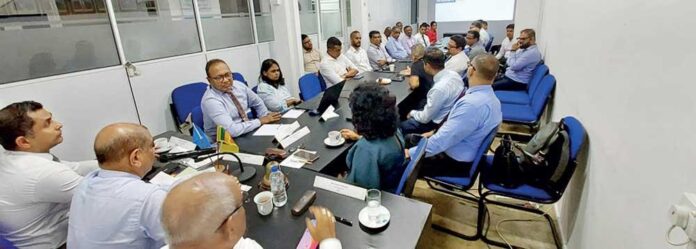By: Staff Writer
July 21, Colombo (LNW): Sri Lankan exporters are strongly opposing the proposed elimination of the Simplified Value Added Tax (SVAT) system, citing significant negative impacts on the export sector and the economy.
The National Chamber of Exporters of Sri Lanka (NCE) has highlighted that the scheduled removal of SVAT in April 2025 will force exporters to pay VAT upfront on purchases, which will strain their cash flow and tie up essential capital. The NCE argues that SVAT should remain until an effective VAT refund mechanism is established.
The current VAT system is criticized for its inefficiencies and slow refund processes, which burden exporters with additional paperwork and prolonged delays in receiving refunds.
This situation exacerbates cash flow problems and creates financial uncertainty, potentially eroding exporters’ competitive edge by increasing costs and complexities. Smaller businesses, with less financial resilience, are expected to be disproportionately affected, risking their viability and growth.
The SVAT system was initially introduced to mitigate challenges faced under the traditional VAT framework.
It defers VAT payments and simplifies the refund process, allowing exporters to avoid upfront financial strain, better allocate resources, and streamline administrative processes.
This system has enabled exporters to maintain competitive pricing in global markets and ensured prompt VAT crediting, thereby providing financial stability.
The finance ministry plans to replace SVAT with a more efficient VAT refund mechanism as part of an economic reform program approved by the International Monetary Fund (IMF).
This program aims to speed up valid VAT refunds and abolish the SVAT system, aligning with broader fiscal reforms.
A parliamentary resolution to revise the VAT Act and abolish SVAT is expected to be presented soon, with official documents suggesting that reactivating the standard VAT could boost tax revenue by approximately 1.2 percent of GDP.
During a recent meeting with the Parliamentary sectoral oversight committee on economic affairs, representatives from various Sri Lankan exporters’ associations emphasized the need for a reliable VAT refund mechanism.
Finance Ministry officials assured that the government would implement an efficient tax system with a proper refund mechanism akin to those in developed countries.
Historically, the SVAT system was introduced to address significant delays in the VAT refunding process, which could take up to 18 months under the standard system.
The RAMIS system, established in 2016, aimed to improve this, but a proper refund system is still lacking. Exporters have also reported corrupt practices involving third-party groups and officials demanding commissions and bribes for expedited VAT refunds.
Overall, Sri Lankan exporters are advocating for the retention of the SVAT system until a robust and efficient VAT refund mechanism is in place. They argue that this is crucial for maintaining their financial stability and competitive edge in the international market.

